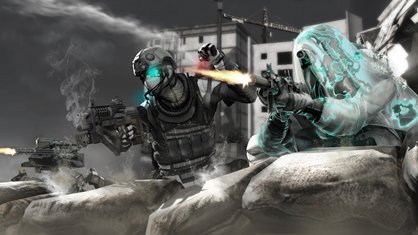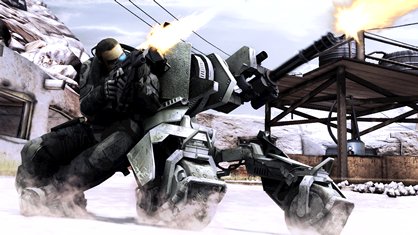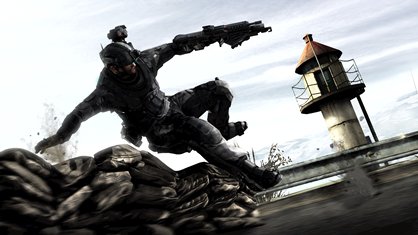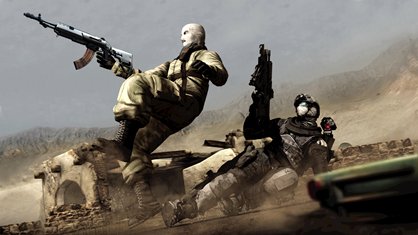Ghost Recon: Has the series changed for better or worse?
Future Soldier is taking the Tom Clancy franchise in a whole new direction. But is it the right one?
After six years, during which eight games and expansions were released, the Ghost Recon series sort of disappeared. We haven't gotten a new entry since early 2007, and in an age when most sequels are pushed out annually or biennially at the slowest, that's unusual.
Now, however, I understand why. Ubisoft, clearly not content to repeat the same formula over and over, has transformed Ghost Recon into a very different experience.The live-action trailergave you a hint of what to expect, but having witnessed the actual game in action last week, I can go into much more detail.
Here is exactly what's been changed, as well as why these changes could be perfect (or not-so-perfect) for the future of the franchise.

Why this should be good: Slightly sci-fi gadgetry is what set the last two Ghost Recon games, Advanced Warfighter 1 and 2, apart from their competition. You had a fancy eyepiece that laid recon and targeting information onto the world surrounding you. You had a remote control robot that delivered weapons and could act as cover when necessary. You had an aerial spy vehicle that provided a bird's eye view of the battlefield.
Future Soldier takes that technology to the extreme, adding turrets to the ground drone and direct steering to the air drone. What's really exciting, however, are the brand new gadgets. Like a shoulder-mounted rocket launcher that can fire independently of your aim. Like an electromagnetic shield that can negate incoming enemy fire. Like a special camouflage that can, through the use of senses-deceiving miniature cameras located all over the body, make you more or less invisible. I can't wait to test out this stuff for myself.

Why this could be bad: The toys in GRAW 1 and 2 felt forward-looking, but not fictional… and you still felt as if you were playing a relatively realistic military shooter, not another Halo. Future Soldier might be dangerously skirting that line, though the developers promise to stick only with technology that could exist in 10-15 years.

Why this should be good: Future Soldier's enhanced Ghost squad has more than cool offensive gadgetry at their disposal – each member is also outfitted with an armored exoskeleton that enables them to carry all that weight into combat while still maintaining an almost superhuman speed and agility. And since each has also been trained in the martial arts, that freedom definitely comes in handy.
Weekly digests, tales from the communities you love, and more
How does this translate into gameplay? Basically, you have brute strength as well as technological strength. You can turn invisible, sneak up on a unsuspecting enemy and take him down with a bone-breaking grappling strike inspired by Krav Maga, the self-defense system taught to Israeli commandos. You can drive your drones from the protection of cover, but a second later you can vault over that cover and roadie run across the level with ease.
In other words, Future Soldier combines the strategic planning from previous Ghost Recon games with the fast and frantic combat of shooters like Modern Warfare and Gears of War. Prefer one to the other? Here, you'll get both.

Why this could be bad: Unless, of course, Future Soldier concentrates too much on the new style and ends up neglecting the old style… you know, the style that made the franchise so popular to begin with. While the very existence of something like an invisibility suit implies that cautious reconnaissance will still be important, most of the gameplay I watched during my demo was of the fire-and-forget variety. Further demos should shed light on this.



